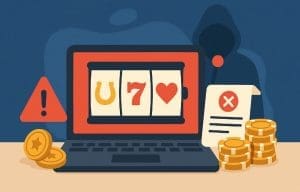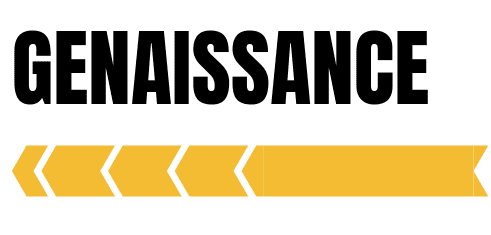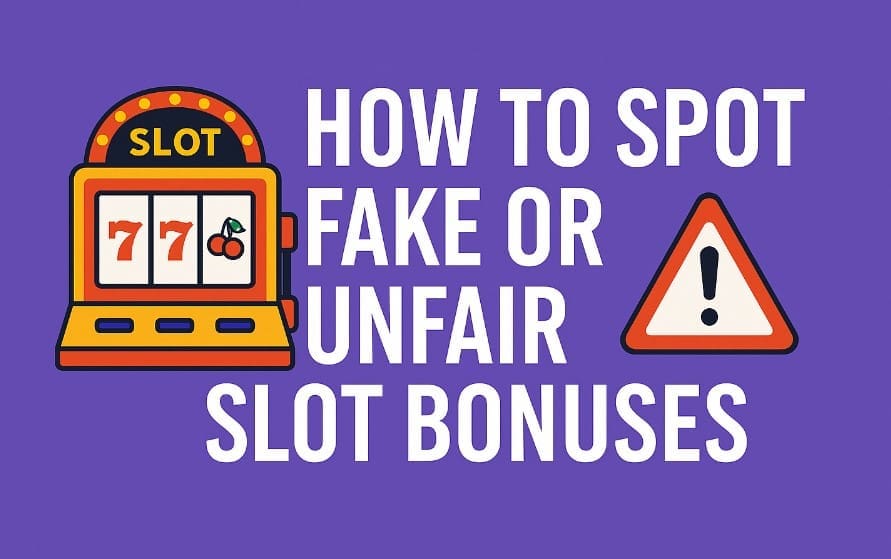Online casinos love dangling shiny offers: big welcome packages, hundreds of free spins, or “no strings attached” cash. For players, these promises can feel irresistible, almost like hitting a mini jackpot before spinning the first reel. But let’s be honest—if it looks too good to be true, it usually is. Some casinos bury traps in the fine print, others just make it impossible to cash out, and a few don’t even bother pretending. Spotting fake or unfair slot bonuses isn’t about being paranoid; it’s about knowing the little tells before you hand over your card details.
Red Flags of Fake or Unfair Slot Bonuses
The biggest giveaway? Offers that sound like they came out of a late-night infomercial. Picture this: “Deposit $10 and we’ll give you $500, no strings attached!” Sure, and I’ve got a bridge to sell you. Unrealistic bonus offers are bait, plain and simple. Operators hope your excitement drowns out your skepticism.
I once met a friend who signed up for a casino promising “instant $50 free.” The catch? She had to wager it 80 times on one specific slot that barely paid pennies. By the time she realized it, she’d already deposited real money trying to chase it back. That kind of setup isn’t rare—it’s the whole playbook.
Another red flag is when terms and conditions are either hidden in some dusty corner of the site or written in legal spaghetti. If you have to scroll through five pages of small print just to learn how to withdraw, that’s not an accident. It’s designed to keep you confused.
And let’s not forget the fake RNGs. On some shady sites, the reels aren’t random at all. Without certification from eCOGRA or a similar body, there’s nothing stopping the operator from rigging outcomes. Imagine pulling a slot handle knowing the machine was programmed never to pay—it’s the digital version of a loaded deck.
Common Tactics Used in Slot Bonus Scams
Scammers don’t usually need to get creative; the classics work just fine. They roll out massive free spin packages but tie them to games with microscopic payouts. Or they slap on wagering requirements so high you’d need a lucky streak worthy of a movie montage to clear them.
I remember testing a casino years ago that promised 150 free spins. Sounds amazing, right? Except all the spins were locked to a single low-stakes fruit slot, with a maximum cash-out of $5. By the time I finished playing, I’d spent more energy clicking through reels than I could ever get back in winnings.
Then there’s the vague wording trick. Instead of “40x wagering requirement,” you’ll see something like “reasonable playthrough conditions apply.” Reasonable to who? Not you, that’s for sure.
And don’t get me started on geographic restrictions. Some casinos happily let you deposit from your country, but once you try to withdraw, suddenly you’re “ineligible.” It’s like being told you can’t return shoes because you wore them outside—except here it’s your money.
How to Verify the Legitimacy of Slot Bonuses
The easiest way to check? Look at the license. Legit casinos proudly display theirs, whether it’s UK Gambling Commission, Malta Gaming Authority, or another regulator. If you can’t find one—or worse, the license number goes nowhere—it’s time to close the tab.
Always glance at the certification logos too. eCOGRA, iTech Labs, GLI—these names carry weight. If the site claims to be certified but clicking the badge leads to nowhere (or back to their homepage), chances are it’s a fake sticker.
And here’s a tip I’ve learned the hard way: run the casino’s name through forums or watchdog sites. Places like AskGamblers or Onlinepokies.me have entire threads dedicated to outing shady operators. If you find page after page of players saying “never got my money,” you don’t need more proof.
The Importance of Licensing and Fair Play Certificates
Licenses aren’t just red tape—they’re your seatbelt. A UKGC license, for example, forces casinos to be transparent about bonus terms and withdrawals. Operators have been fined millions for hiding traps in the small print. That kind of accountability doesn’t exist on unlicensed sites. They can vanish overnight, taking every deposit with them.
Fair play certificates, like the eCOGRA badge, add another layer of trust. It’s like having an independent referee making sure the slot reels aren’t fixed. Without it, you’re spinning blind. And yes, scammers sometimes slap on fake logos, but with a quick click-through, you can usually tell if it’s real or not.
Unrealistic Bonus Offers and What They Mean
If a bonus looks outrageous, ask yourself: how can the casino afford this? A site promising $200 free just for signing up isn’t a miracle—it’s bait. There’s always a hidden ceiling, like capped winnings or absurd withdrawal fees.
One player I knew signed up for a “$100 no deposit bonus.” She won $40 on her first session and thought she’d scored. Then she found out she had to deposit $200 just to unlock the withdrawal option. It wasn’t a bonus at all—it was a sales funnel.
Identifying Unfair Bonus Terms and Conditions
Here’s where the real traps hide. A few classics:
- Wagering requirements so high you’d need a miracle to cash out.
- Limiting spins to low-volatility games that rarely pay anything decent.
- Maximum bet rules that make clearing requirements painfully slow.
- Bonus abuse clauses vague enough to let them void your winnings anytime.
If the terms read more like a maze than a player agreement, it’s not by accident.
Spotting Fake Slot Machine Features
Some scams go deeper than the bonus—they tamper with the games themselves. Rogue casinos sometimes host knockoff versions of popular slots. The logos look right, the reels spin fine, but the payouts? Nonexistent.
Once, I tried a “licensed Microgaming slot” on a no-name site. Everything seemed normal until I realized the paytable had been altered—the wild symbol didn’t pay what it should. A quick check on Microgaming’s official list confirmed the casino wasn’t even an approved partner. Lesson learned: if it feels off, it probably is.
The Role of Player Reviews and Watchdog Sites
There’s no better teacher than other players’ mistakes. Forums are full of stories about casinos demanding five different IDs, delaying withdrawals for months, or outright ghosting customers. The details may vary, but the pattern is always the same: excuses pile up until you give up chasing your winnings.
On the flip side, watchdog sites also keep lists of trustworthy operators. Seeing a casino respond professionally to complaints is a good sign. Scammers don’t bother—they just disappear and rebrand under a new name.
Understanding Certification: eCOGRA and RNGs
Random Number Generators are the unsung heroes of fair slot play. Without them, every spin could be stacked against you. eCOGRA and other certifiers test these systems to ensure fairness. It’s a bit like having a trusted mechanic check that the car you’re buying doesn’t have a hidden engine fault.
But beware of fake seals. If the badge doesn’t link to the certifier’s site, it’s probably nothing more than a JPEG slapped on the footer.
Recognizing Withdrawal and Payment Red Flags
Here’s where the mask usually slips: when you try to cash out. Delayed payments, mysterious fees, or endless requests for “additional verification” scream trouble. Some operators even invent reasons like “irregular betting patterns” to confiscate winnings.
Legit casinos spell out their withdrawal process upfront. If a site stays vague about timelines or requirements, expect a headache later.
Steps to Avoid Slot Bonus Scams

Protecting yourself doesn’t take paranoia, just some common sense. Three quick steps usually do the trick:
- Verify the license—it’s the casino’s passport.
- Read the terms—yes, all of them, even the boring bits.
- Check their reputation—player forums are brutally honest.
If any of these raise red flags, keep your money in your pocket.
Why Players Keep Falling for Scams
The truth? Shiny bonuses are exciting. Even seasoned players get caught in the moment. Casinos know this. That’s why the offers are designed to be flashy enough to make you stop thinking critically. Slowing down and taking ten minutes to double-check a site is often all it takes to avoid trouble—but in the heat of the moment, most people don’t.
Staying Ahead of Fraudulent Operators
Scammers aren’t going away. They’ll keep dressing up bad offers with fresh paint. But the industry has grown sharper, too. Regulators issue fines, watchdog sites blacklist rogue operators, and word spreads faster than ever. The more informed players become, the less oxygen scams have.
Final Thoughts
The sneakiest thing about fake or unfair slot bonuses isn’t just the money they cost—it’s the trust they break. Once you’ve been burned, it’s hard to play without that nagging doubt. But spotting the warning signs isn’t rocket science. Check the license, skim the fine print, and lean on player communities for real-world feedback. The truth is, real casinos don’t need to trick you; their games and bonuses speak for themselves. And if an offer gives you that uneasy gut feeling, trust it. Walking away always costs less than fighting for a payout you’ll never get.
FAQs About Spotting Fake or Unfair Slot Bonuses
How can I tell if a bonus is realistic or fake?
Compare the offer to industry norms. A 100% deposit match with 30–40x wagering is normal. Anything far beyond that almost always has a nasty catch.
What licenses should I trust most?
The UK Gambling Commission and Malta Gaming Authority are rock solid. Curacao is weaker, so proceed with caution.
Do free spins always come with hidden terms?
Not always, but most do. Expect restrictions on games, capped winnings, or attached wagering requirements.
What happens if I win on a fake slot game?
Honestly? You probably won’t see the money. Rigged games and unlicensed operators rarely honor payouts.
Are watchdog sites reliable for finding scams?
They’re not perfect, but they’re invaluable. If multiple players share the same complaints, take it seriously.


